Gum Disease Treatment – Cary, NC
Keeping Your Gums Free of Infection
While many don’t realize it, nearly half of American adults have a severe form of gum disease. This condition starts relatively mild, but eventually, it can destroy the tissue that keeps your teeth attached to your jaw, leading to tooth loss. When an infection in your gums has become too advanced to treat with a simple cleaning, you can count on Dr. Singh to provide you with effective gum disease treatment in Cary, NC, that could save your smile. Contact us today if you think your gums need special attention.
Why Choose Cary Dental Rejuvenation for Gum Disease Treatment?
- Soft Tissue Lasers Used for a More Comfortable Treatment
- Thorough Deep Cleaning Above and Below Gumline
- A Caring, Appreciative Dentist
What is Gum Disease?
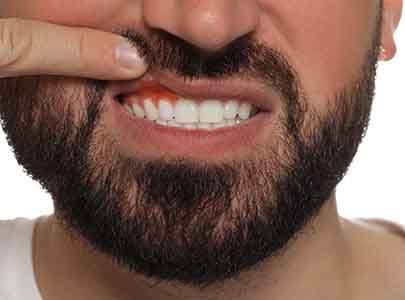
When bacteria attack the gums, they become infected. Bleeding and inflammation are often the initial signs of gingivitis, which is the first stage of gum disease. If caught early, the symptoms can be reversed by practicing good oral hygiene at home and attending regular cleanings with our dental team. If left untreated, though, the infection can spread, resulting in periodontitis. It is at this point that gum disease can negatively affect more than just your mouth. It can also play a role in health-related conditions developing throughout the body.
Symptoms of Gum Disease
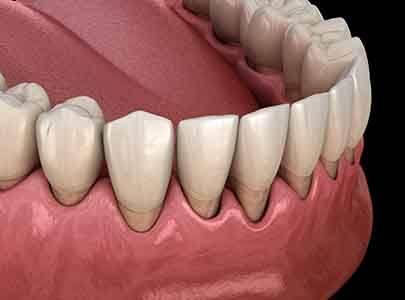
While bleeding and inflammation may be the first signs you notice, others can go undetected or be dismissed if you are unsure what to look for. Dr. Singh is highly qualified to be able to check for the signs of gum disease during a checkup, but you can take a more proactive approach if you notice any of the following before your appointment:
- Your teeth appear longer than before (gum recession)
- Your teeth no longer come together as cohesively as before
- You notice that one or more of your teeth are loose
- You’ve developed bad breath
- Your gums feel more tender
How Do We Treat Gum Disease?

At Cary Dental Rejuvenation, Dr. Singh will first examine your mouth using state-of-the-art dental technology to determine the severity and extent of the infection. Once he builds a treatment plan, he will discuss the available services and decide which one is right for you.
Antibiotic Therapy

Even after a deep cleaning, there might still be some bacteria in your mouth that could contribute to an infection in your gums. That’s why we’ll often make antibiotics a part of your periodontal therapy. At Cary Dental Rejuvenation, we’ll locally apply a medication called ARESTIN® to any pockets that have formed in your gums as a result of gum disease. This way, it can help get rid of bacteria and encourage the mouth to heal at a faster rate.
Scaling & Root Planing
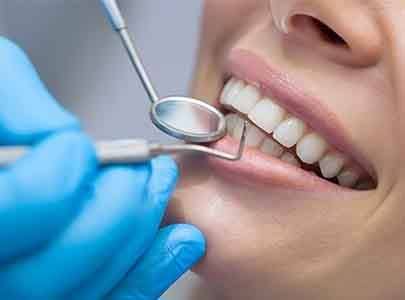
The deep cleaning procedure typically used to treat gum disease is divided into two major phases: scaling and root planing. Scaling is the process of cleaning bacteria, plaque, tartar, and general debris off the surface of your teeth as well as around and below the gumline. Once that is done, we perform root planing to smooth out the roots of your teeth, helping them reattach to the gums and effectively stopping the disease’s progression.
Do I Need Scaling & Root Planing?
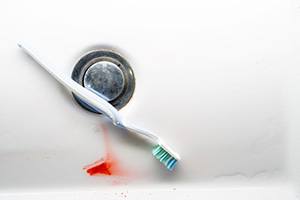
You might need scaling and root planing if you notice symptoms of gum disease, such as:
- Red, swollen, and puffy gums.
- Persistent bad breath that does not go away when you brush and floss.
- Gum recession.
- Visible plaque buildup along your gumline.
- Easy bleeding when you brush or floss.
In some cases, the earliest stages of gum disease can be reversed via thorough at-home oral hygiene. In other cases, scaling and root planing is necessary. Our team can let you know which option is best in your case.
The Process of Scaling & Root Planing
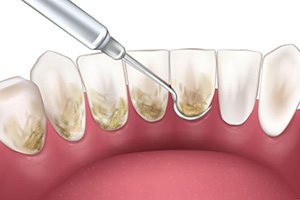
Scaling and root planing is a two-part procedure:
- During scaling, we use an instrument known as a scaler to scrape plaque and tartar off the teeth. We also reach into the gum pockets in order to clean below the gumline.
- During root planing, we smooth out the roots of the teeth so it is more difficult for bacteria to stick to them.
Depending on how much of your mouth requires treatment, scaling and root planing may require multiple appointments.
Aftercare Tips for Scaling & Root Planing

Scaling and root planing can cause some gum tenderness and soreness. It might be a few weeks before your gums recover. In the meantime, here are some tips to minimize your discomfort:
- Regularly rinse your mouth with warm salt water.
- Eat soft foods that are not too hot.
- Be gentle when performing oral hygiene. Be sure to use a soft-bristled toothbrush.
- Avoid strenuous physical activity for the first few days after your procedure.
